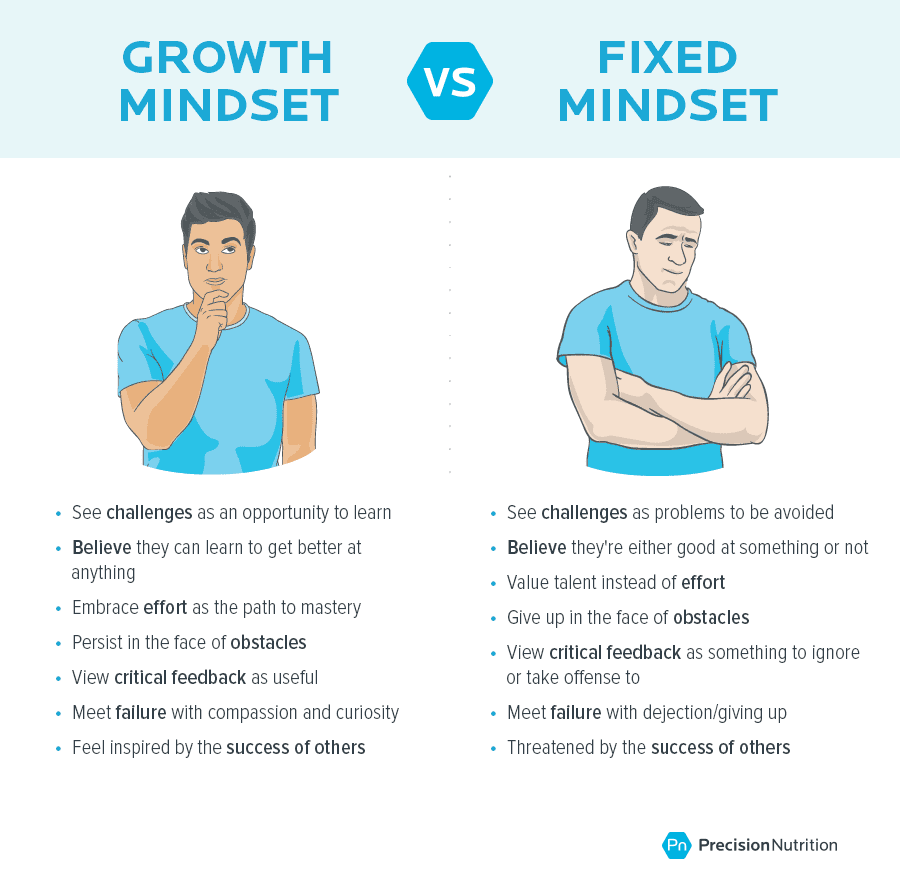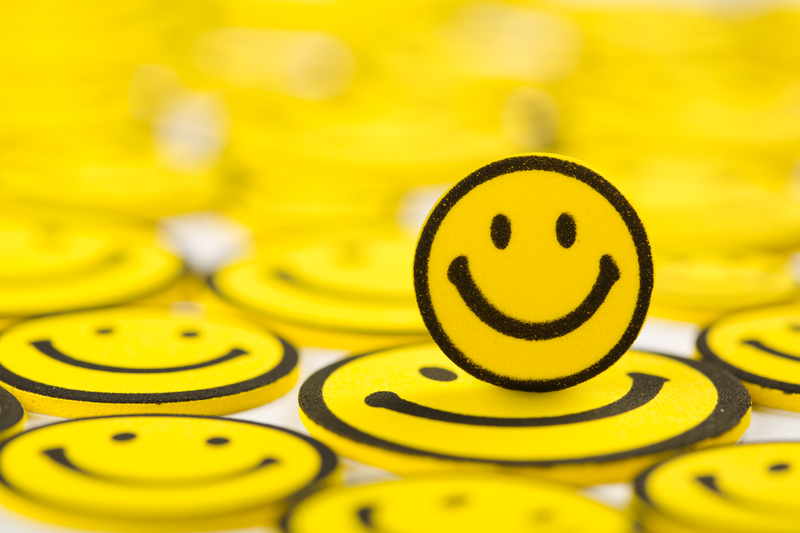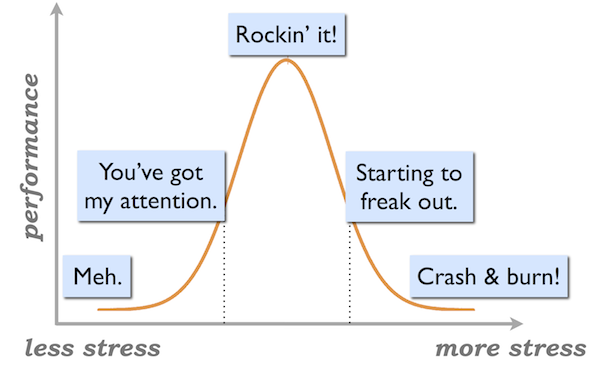You know those coaches who seem balanced, resilient, content, successful? They’re not superhuman. They just have strategies to help them surf the ups and downs of their meaningful but challenging work. Here are eight big ones, designed to help you build resilience and avoid coach burnout.
- Want to listen instead of read? Download the audio recording here…
++++
If you work in health and fitness — whether you’re a physician, personal trainer, therapist, yoga teacher, or group exercise instructor — your mission is to help people lead healthier, more empowered lives.
Which is awesome, because you get to:
- help them find (and articulate) the big goals they dream of accomplishing.
- oversee their transformations from “this is never going to happen” to “holy crap I’m doing it” to “I AM THE STRONGEST HUMAN IN THE GALAXY!”
- watch them stand taller, not just because they feel better in their clothes, but because they feel a sense of power in their lives.
- receive hugs and kind words when they realize they’re different; they’re happier and healthier and you helped them do it.
But…
This super-duper fulfilling work can also be… exhausting.
It requires a lot of mental energy, which can take its toll and, if you’re not careful, lead to burnout.
The four types of coaches most at risk.
Burnout can happen to anyone, although it occurs more often in “helping professions”, and certain behavior patterns make some folks extra-vulnerable.
Here are the four types of coaches most at risk.
The Helper
Many people who choose a career in health and fitness do so out of a basic desire to help others.
If you have a desire to help, it’s probably because you’re paying attention to the needs of those around you and want to use whatever skills and resources you have to respond to those needs.
You’re probably conscientious, empathetic, and generous, too.
Go you!
But there can be downsides to being a helper, too.
Common reasons why The Helper may feel emptied out:
- You may attach your self-worth to how successfully you help. This is tricky because, of course, so much is out of your control. For instance, you can’t inject a client with motivation if they’re just not ready yet (and in fact, pushing against them with more enthusiasm may actually backfire). If you’re a doctor or nurse, you can’t control a patient’s life history or genetics; some of your patients may stay sick or die.
- You are likely empathetic, which means you’re more likely to feel and absorb other people’s pain. This is a superpower, but it can also be a burden if not managed effectively. Empathy gives you the ability to understand a client or patient’s experience with great depth, to the point where it can almost feel like you’re going through their challenge too. While this allows you to adeptly sense a person’s needs, it also means coaching can be an emotional rollercoaster.
- You may have trouble disconnecting or compartmentalizing your work. You struggle to “turn off” or let go of things you can’t control. Like when you’re trying to fall asleep and you’re thinking, “I have a patient who’s struggling — I need to figure out a way to help!” Or when you’re on vacation and mid-sip of your margarita you think, “Oh my gosh! I just thought of the perfect resource I need to send my client!” It’s hard to recover when you’re always “on”.
- You may believe (subconsciously or otherwise) that helping others is good, but helping yourself is bad. You might find yourself brushing off giant favors you extend to others, but being stingy when it comes to yourself. You might think it’s “selfish” to ignore a client’s email so you can take a restorative walk outside. You might think it’s “the right thing” to put your patients’ needs before yours. But that whole “put on your oxygen mask first” thing? That’s just as true on the ground. You need time to breathe too!
The Athlete / The Warrior
If you come from an athletic or tactical background, self-care can seem like a joke. And “self-compassion”? Not in your vocabulary. You’re thick-skinned and gritty and will finish that race even if there’s blood spewing from your knee.
People may admire your “toughness”, and you might be especially skilled at helping people dig deep to find that last bit of fire needed to complete a grueling set of deadlifts, or to find the courage to try some new vegetables.
But all that fire? Yeah, sometimes it burns.
Common reasons why The Athlete / Warrior may get scorched:
- You value extreme performance very highly. In fact, you value “extreme” things in general. Pushing your limits. Going to the edge. Finding your breaking point. Yeah, that’s the stuff that gets you going. When you encounter pain, you’ve got a voice in your head that says, “Suck it up!” and “Walk it off!”. Quitting? Not for you.
- Self-care or stress management may seem like a show of weakness. You might feel like taking a break is for weenies. Further, you have an insatiable desire to be part of the action. You don’t want to be benched! You want to be on the court! You’ll just tape up that femur that’s bent at a weird angle, and keep going.
- You’re used to strenuous training and take pride in your ability to work hard. After years of getting up early for practice, performing under pressure, and ignoring your body’s cries to “STAHHHP!”, grinding is what you do best. This ability to keep going while others around you drop has made you stand out and feel special. You’re the one who keeps going, like a fleshy Terminator. That’s not a reputation you’ll give up easily.
The Passionate Go-Getter
You went into coaching because you love it. Your passion fuels you. You leap out of bed in the morning, pump your fist in the air and say, “I’M GONNA SAVE THE WORLD!”
That’s fantastic.
The world needs your bright-eyed dreams and your thrumming heart. Your clients and patients often find your enthusiasm infectious. You have the ability to convince people they can do anything.
But sometimes your buoyant balloon springs a leak, and it all goes pfffffffftttt.
Common reasons why The Passionate Go-Getter may get deflated:
- Passion can make you want to do more than is required — or even healthy. In work, your eyes may be bigger than your stomach. Your dreams are often bigger than your mortal body can keep up with, although, goshdarnit, you’ll try. You want to be the person who “goes the extra mile”. You want the gold star.
- Passion can tell you to keep going, work harder, or fix it already, when really, a break would be better. When you have a strong purpose, it can be hard to stop. Especially when you serve a lot of people, you may wonder why on earth you’d prioritize little old you rather than create something that benefits the masses. You tend to ignore your own needs, because the needs you’re serving are so great.
- Passion can make it hard to recognize signs of fatigue until you’re past-the-point-of-no-return-exhausted. Tired? Impossible! You jump out of bed! Your pounding heart keeps you alert and focused and inspired all day! You can’t wait to meet your next client / start the next project / teach your next class! Once you finish one task, you look around hungrily and ask, “WHAT’S NEXT?!” … Until your speeding car crashes. In a full-body cast, now you have to rest. Ugh.
The Role Model / The Walk-the-Talk
You want to inspire and motivate your clients. Show them what’s possible. Live by example.
You are so careful and conscientious of how you live your life. You feel like people are watching; you’ve got to be on your best behavior.
You are a person of high integrity and a model of good practices. People often tell you they look up to you, and that you inspire them.
Now that’s admirable.
But gosh… your collar is starting to feel a little tight, your chest a little… compressed.
…Gulp, is the room getting smaller?
You’ve got an awful lot of pressure on you.
Common reasons why The Role Model / Walk-the-Talk may feel squashed:
- You may feel that you need to act and look like a picture-perfect icon of health. You beat yourself up for your human flaws. “How am I supposed to coach people to eat better if I can’t quit my after-dinner cookie habit?” you fret. During client / patient sessions, you feel you should have all the answers. In life, you feel you should be able to triumph over all the adversities. Any escaped fart or burp is unacceptable.
- You may flat-out ignore clear signs that a break is needed. Under the weather? “Oh, I never get sick” you say, sinuses throbbing. You stoically fight it off, because people would talk if you missed a day at the gym. After posting about your juice cleanse success, you drive to another town to get ice cream because, well, you’re eating refined sugar like a fraud. You’re not allowed to get sick, overindulge, or mess up. People are counting on you.
- You’re never satisfied with “average”. Forget the six-pack abs — you shoot for eight! Hey! You just invented two more abs! You smile at the #fitspiration this will generate. You want people to be their absolute best, always. And if you’re guiding people to be their best, you’ve gotta be better. It’s your ethical obligation. Can’t preach what you don’t practice, right?
Noticing the signs of coach burnout.
In some ways, among many coaches, burnout is a badge of honor.
It’s easy to use our fatigue as an indication that we’ve been busting our butts for the benefit of the people we care so much about.
However, perpetually busting butt without investing in rest, recovery, and mindset shifts can lead to… dragging butt. Or worse, butt-on-fire.
For this reason, it’s important to recognize the signs of burnout, which are different from the signs of run-of-the-mill stress.
With stress, we’re ready to respond immediately to a threat. We’re in full fight-flight mode. Like a tiger ready to pounce.
With burnout, we move past acute fight-flight to collapse. We start checking out. We feel helpless, overwhelmed, trapped. We become immobilized, convinced things are hopeless. The tiger is ready to crawl into a hole.
Temporary, acute bursts of stress can actually energize and strengthen us.
Burnout depletes us. It feels like drowning… with no life preserver in sight.
One of the biggest signs of burnout is that you just stop caring about things you used to care about.
Your shiny fantasies of changing lives are now dusty, dried-out shells of dead ideals.
You feel defeated and hopeless, overwhelmed by the tidal wave of human misery you’re dealing with. Or perhaps you feel incredibly irritated and frustrated: Why is everyone such an idiot?? You simply cannot find it in you to give a crap any more.
Other signs of burnout include:
- Trouble falling or staying asleep
- Feeling fatigued, spaced-out, or dizzy
- Heart palpitations, racing heart
- Either having no appetite, or finding yourself comfort-eating
- Upset stomach, digestive issues
- Headaches, migraines
- Jaw tension or tooth grinding
- Chronic aches and pains
- Coping through alcohol, drugs, shopping, etc.
- Getting sick more often, and taking longer to get better
- Losing your hair (if that’s not normal for you)
- Always feeling worried or anxious but helpless to do anything about it
- Difficulty concentrating; poor memory
- Trouble prioritizing or procrastinating more
- Feeling resentful
- Feeling disconnected or alone
- Avoiding friends, family, and especially clients/patients
Coach burnout is common, but not inevitable.
I’ve experienced burnout myself.
Luckily, I came back from that dark night of the soul (and trainwreck of a body). And I learned that burnout is not a job requirement in coaching. You don’t have to work yourself ragged in order to help people or have a great career.
And honestly? Although we often think that crushing ourselves will impress others, it doesn’t. Fact: A burned-out coach is an ineffective coach.
If you want to help your clients and patients achieve their best, you need to help yourself first. Yes, you have superpowers. But you’re a human first.
How to avoid burnout so you can keep changing lives.
You know those coaches who seem genuinely balanced, resilient, content, and successful? They’re not superhuman. They came from the same planet as you!
What makes them so effective are the strategies they practice that help them surf the ups and downs of this meaningful, often challenging work.
Want to learn from them?
Here are 8 strategies to build your own resilience, and prevent burnout:
1. Cultivate a growth mindset.
Developing the resilience you need to become burnout-proof depends on mindset. And an anti-burnout mindset is a growth mindset.
A growth mindset looks at everything as an opportunity — every “failure” is just feedback; every challenge is an occasion to learn; every problem is an invitation to invent a new solution.
When you receive criticism or meet an obstacle, you treat it like an interesting puzzle. You rub your hands in delight at the thought of a novel challenge. Even if you fall apart, you put yourself back together, stronger.
A growth mindset is also curious. When events go awry, it asks:
- Why did things happen that way?
- Could things happen differently?
- What if I tried a new way to solve the problem, or put some more effort into it, or asked for help?
This curiosity helps you find answers that you can use to your advantage the next time you face adversity.
The opposite of a growth mindset is a fixed mindset.
Someone with a fixed mindset believes:
- Some people are “good at stuff” and some aren’t. Things are how they are. End of story.
- Failure or negative feedback is shameful and reflects a personal deficiency. If you’re “good”, you shouldn’t be criticized.
- If a problem feels difficult to solve, it means the person trying to solve it isn’t “good enough”. If someone struggles, they just don’t have the “talent” to do it.
A growth mindset uses challenges to develop strength and smarts. A fixed mindset is only happy when things go smoothly; at the first sign of challenge, it runs or cowers.

2. Focus on behaviors more than outcomes.
Your clients may come in with high expectations.
I want to lose 40 pounds.
I want to look like The Rock.
Hurry. I need to get better fast.
You might have expectations yourself.
If my client doesn’t meet their goals, I’m a failure.
I need to answer every single question or I’m a fraud.
If I don’t look the part no one will respect me.
The problem is, no one can control outcomes.
And the more you try, the more anxious and frustrated you risk becoming, because you’re trying to control uncontrollable things, and well… you see how that goes.
Instead, focus on what you and your client can control:
- Mindset. (See above); and
- Behaviors. Want to lose 40 pounds? Not under your control. Eating more vegetables and making it to the gym four times a week? Definitely under your control.
Figure out what behaviors support the intended outcomes, and break those behaviors into daily habits. Practice those habits consistently and outcomes are far more likely, and more sustained.
3. Know who’s responsible for what.
Clients and patients will come in with all kinds of pain and problems. Some of those (lovely, well-intentioned) clients will want to hand that pain over to you.
In your journey as a health practitioner, your job is not to bear another person’s load. Instead, your job is to help guide people through rocky spots and walk beside them on the path.
Have compassion for your clients’ / patients’ struggles, but instead of offering to fix or take away their pain, offer them your belief that they can handle it.
This is the way we help people get stronger.
If you find someone putting undue pressure on you to “fix it”, or if you’re placing that pressure on yourself, calmly hand the responsibility back by reminding them of your role as a coach (sharing your expertise and experience) and their role as a client (deciding which actions to take and then taking them).
In other words, your job is to be well-prepared and informed as a practitioner, and to offer knowledge, insight, compassion, and gentle course corrections.
It’s your client’s job to decide what work to do and then do it.
4. “Rest and digest” regularly, no matter what.
Stress activates the sympathetic branch (i.e. the “fight-flight” mode) of our autonomic nervous system.
You can purposely activate your parasympathetic nervous system (i.e. the “rest and digest” mode), using several techniques:
- Movement that “discharges” energy built up from SNS activation, such as:
- running (which tells your body you’re OK and you’re escaping)
- boxing or MMA (which tells your body you’re able to fight)
- trembling or shaking (which is part of our natural “trauma release” system and discharges stress from the body)
- tumbling or rolling (which temporarily disorients us, acting as a nervous system “reset”)
- Breathing that focuses on slowing the breath, dropping the ribcage down, and creating a long, deep out-breath, and a natural, slow in-breath.
You might have your own roster of movements and practices that calm you down and leave you feeling lighter and breathing easier. Add those are your “resilience toolbox” too.
5. Check in with your body.
If your body is giving you signals that it’s hurting, it’s not letting you down. It’s trying to communicate something.
Respect what your body is telling you.
Tune in to physical signals and honor them.
For example, if you notice you get a headache every day around 3pm, adjust a few things before it progresses to daily skull-shriveling, vice-gripping migraines.
Maybe you need a break from the computer around 2:30? Or a walk in the fresh air? Or a power nap? Or a healthy snack?
Experiment with different “interventions” to see what helps your body.
To get better at “listening to your body”, try this:
Do a quick mind-body scan.
Lie down, get quiet, and “scan” your body from head to toe, observing how you feel, physically and emotionally. Watch for signs and symptoms of discomfort, both physical and mental.
If you find discomfort that’s particularly chronic or intense, pay attention. Your body might need some rest, or attention from your own healthcare practitioner.
6. Practice and prepare.
Practice being calm under fire, so that when crap really does go down, you’re prepared.
Resilient people — such as elite athletes, military personnel, or high-level performers — anticipate, train, and plan for obstacles.
They visualize themselves working through the kinds of problems they’ll typically encounter, and practice staying composed and focused during the process.
For instance, when emergency personnel arrive at the scene of an accident, they’re ready. They’ve prepared and tested their equipment beforehand. They carefully and calmly run through a standard process of assessment, triage and treatment. Even if they have to work quickly, they know what to do.
Why? Because they’ve prepared. They’ve practiced.
Even under the pressure of “code red” level doodie, the skills that will help them respond and emerge safely are so practiced they’re nearly automatic.
If you want to develop this kind of ready-for-anything resilience, think about what challenges you’re likely to encounter over the next couple weeks in your practice:
- What can you do now to prepare?
- Can you put anything in place to help you circumvent the inevitable bumps in the road?
- Do you have a checklist that helps you remember what to do during a client / patient session?
If you’re facing a tough client situation, ask a friend or colleague to help you role-play it in advance while you rehearse staying relaxed and focused.
Yes, it feels dorky, but better to practice now than panic later.
7. Rewrite your story.
We create identities, stories, and scripts about ourselves and our world.
Sometimes those identities, stories, and scripts do more harm than good.
We can become more resilient by challenging and re-framing our own narratives about ourselves and our lives.
Think about a current situation in your own life right now — something that’s troubling or frustrating you.
What’s the story you’re telling yourself about it?
Play that out in your mind or better yet, write it out on paper. Write out all the outlandish / puffed-up / crappy beliefs you have about what it “means” to be you.
Now try rewriting that story from at least two different perspectives.
For instance:
Your original story:
“I have to do it all. Everyone is depending on me. I feel frazzled and alone.”
Re-framed story 1:
“If I think about this from someone else’s perspective, nobody expects me to do it all. Actually, people have been asking me to slow down and I’ve been ignoring them.”
Re-framed story 2:
“I’m not alone. My intern has been asking to help out. This is a great opportunity to give her a chance at professional development. I’m going to delegate some tasks to help her start learning.”
Re-framed story 3:
“Feeling stressed helps me understand what my clients go through. If I can teach myself to slow down and do some self-care, I’ll be able to speak from experience and help them do the same.”
Reframing offers a more flexible perspective. Suddenly, you’re not so trapped in a narrow plot that ends in doom. Now, you’ve got more room for possibility, and discovering new endings.
8. Use your team.
One of the quickest ways to get burned out is to isolate yourself — whether that’s because you don’t think anyone can do as good a job as you, because you don’t trust people to help you, or because you don’t want to “burden” someone else.
But think about this: USA weightlifting team. Seal Team 6. Diesel Crew.
The strongest and toughest people in the world have spotters standing by.
Even if your body and spirit can literally move a 1000 pounds, you still need people looking out for you. Before that, you needed trainers and coaches and physiotherapists and, you know, your mom on the sidelines cheering you on.
There’s no “burned out sad and alone me” in T-E-A-M.
So reach out. Ask for help. Stop trying to carry the world.
And if you’re going to try to carry the world anyway, you stand a much better chance of doing it with lots of people grabbing a corner to lift.
If you don’t have a team yet, start recruiting.
What to do next:
Some tips from Precision Nutrition
Follow the steps below to start building resilience so you can avoid getting burned out, and help the people you care about even more effectively than you already do.
Assess your situation honestly and clearly.
If you genuinely feel good, vibrant, and on your game — great!
Keep doing what you’re doing.
If you’re noticing that you’re not recovering well from stress, or that uncomfortable symptoms (like digestive distress, chronic pain, worry / anxiety, etc.) are piling up, consider doing something different.
Build your resilience toolbox.
No matter how resilient you are naturally, you can build more with practice.
What resilience skills do you have right now?
Where / how could you get more of what you need? What could you add?
Consult the above 8 strategies and choose some favorites to start practicing and building.
(And for more great tips on how to manage stress, check out the PN article “Good stress, bad stress”.)
Get into your body.
Check in with your physical self.
How you do feel physically? Full of focused, sustained energy? Or full of anxiety gremlins and mojo vampires?
If you like, try a mind-body scan (PDF worksheet, guided audio file).
Instead of pushing aside how you feel, take note of it. Just start by cultivating non-judgemental awareness.
In addition to helping us “catch” messages before they get really loud, inhabiting our body helps us stay more present and grounded, leaving us more able to respond to and recover from stress.
Be kind to yourself.
Pushing harder, working longer hours, being more self-critical, and putting more pressure on yourself?
Ease up.
This “drill sergeant” approach rarely works, and usually just further depletes you.
Try the opposite:
Be kind and gentle with yourself. Respect your physical signals and needs. Prioritize care… for you.
Yes, maybe “everyone else” seems to be “handling things just fine”.
But even if they were, only you are you.
Each person has a unique “stress fingerprint”, which can change over time, and is more or less vulnerable depending on whatever else is going on in your life.
Accept and respect what your body, mind, and spirit are telling you right now.
Give yourself what you need.
No excuses.
Ready to move from competent to truly masterful—in 20 weeks?
The PN Level 2 Master Health Coaching Certification is an advanced, practice-based program designed for coaches who want to work at a deeper level—and do it sooner than the traditional 5–10 year path.
This is not a nutrition course.
It’s a mentored, small-group experience that prepares you to:
- Work confidently with complex client realities like stress, mental health, and emotional setbacks
- Apply behavior change principles that hold up when life gets messy
- Understand clients beyond food and fitness—so change actually lasts
You’ll learn directly from PN’s most experienced coaches through weekly live mentorship, structured self-study, and real-world coaching practice.
Why it matters
Level 2 is NBHWC-approved, making graduates eligible for:
- National Board Certification through the NBHWC
- Professional membership with the Health Coaches Alliance (HCA)
These credentials expand your career options and set you apart in an increasingly crowded field.




Share